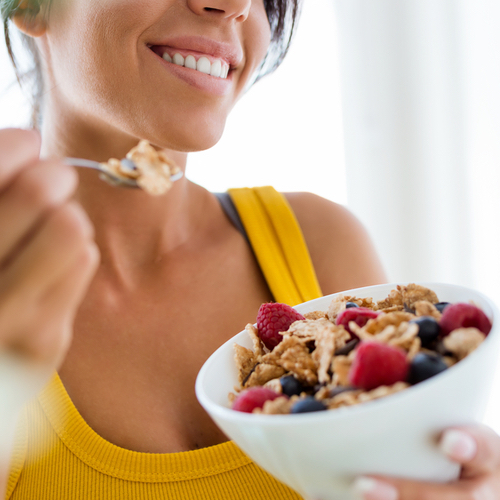This is an archived article and the information in the story may be outdated. Please check the time stamp on the story to see when it was updated last.
As you begin to improve your diet and work towards a healthier lifestyle it can be difficult to determine which aspects of your eating plan are working for you, and which are impeding on your results. Breakfast is an important part of your day in setting the stage for the meals to come, and eating a breakfast lacking in nutrients may make it more difficult to eat well throughout the day as it can fail to satiate you, leaving you reaching for snacks in the coming hours to fill the gaps. While you can eat most foods in moderation and still lose weight, there’s one breakfast that does little to support your healthy lifestyle when consumed regularly.

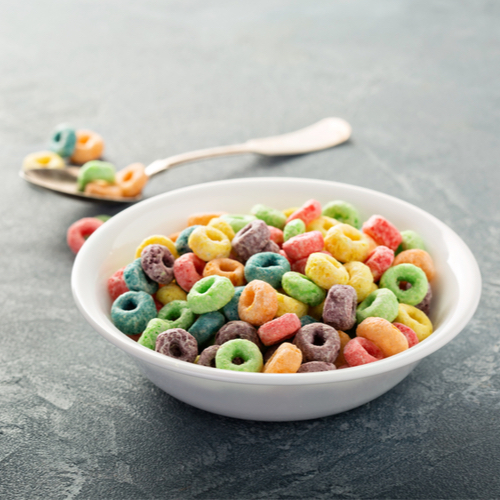
Cereal may be a quick and easy meal to throw together when you need to rush out the door, but the reality is that most options do very little to keep you full, instead starting off your morning with an overload of sugar and empty calories which is far from conducive to weight loss. “These products often contain a lot of sugar and also a lot of preservatives and additives. Even healthy versions may not be that healthy as they can contain a lot of highly processed ingredients,” explains Jeanette Kimszal, RDN, NLC. Starting off your morning with sugary breakfast cereal will not only fail to keep you full, but will also likely end in an energy crash, leading you to turn to unhealthy snacks and resulting in an excess of calories over time.
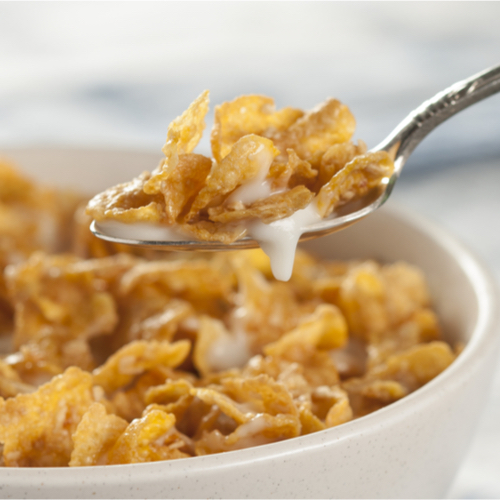
Not only is cereal often high in sugar, but it’s lacking the vital nutrients that would make a breakfast healthy. “Most cereals are packed with added sugar and don’t contain much protein, which helps make you feel full. In addition to the added sugar content, many breakfast cereals are made with refined grains, meaning they are low in fiber. Refined grains tend to spike blood sugar levels more than whole grains,” explains RD Diana Gariglio-Clelland. “When blood sugar levels spike, the body releases more insulin, which is a fat-storage hormone. People with high insulin levels are more likely to suffer from insulin resistance, which can result in prediabetes and type 2 diabetes, as well as unwanted weight gain.”
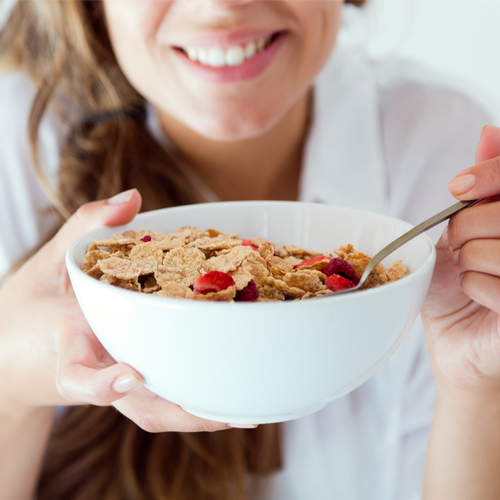
If you still want a quick meal in the morning but are looking for an option which offers more nutritional value, oatmeal is the best way to go--particularly overnight oats. “One exception to cereal grains would be plain whole-grain oatmeal. This breakfast provides a good source of fiber. Adding some nuts or seeds to the oatmeal will also increase the protein content,” suggests Kimszal. Need another boost of protein? Try including a scoop of protein powder into your cooked oats for even more flavor while increasing satiety.
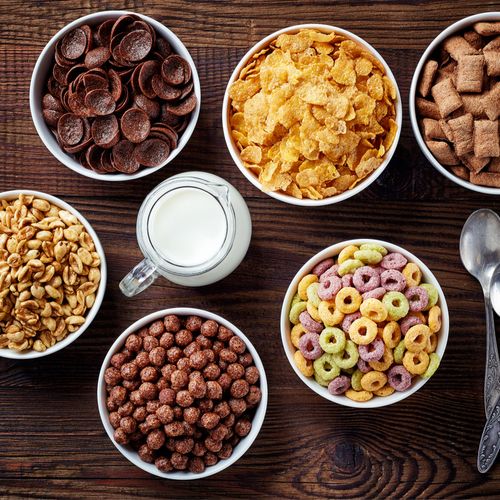
Breakfast, while not necessarily the most important meal of the day, is vital for setting the stage for your energy levels moving forward. Making healthy choices in your first meal will help to continue those habits into lunch and dinner, so regularly eating cereal for breakfast is unlikely to allow you to achieve the results you’re hoping for. Low in nutrients and high in empty calories and sugar, cereal may seem like a quick and easy choice, but it’s only setting you back further, perpetuating the habits that you’re trying to break. Oatmeal, eggs, or even avocado toast and fruit are all much more effective breakfast options for feeling great in your body, keeping you full so you can thrive throughout your morning.





